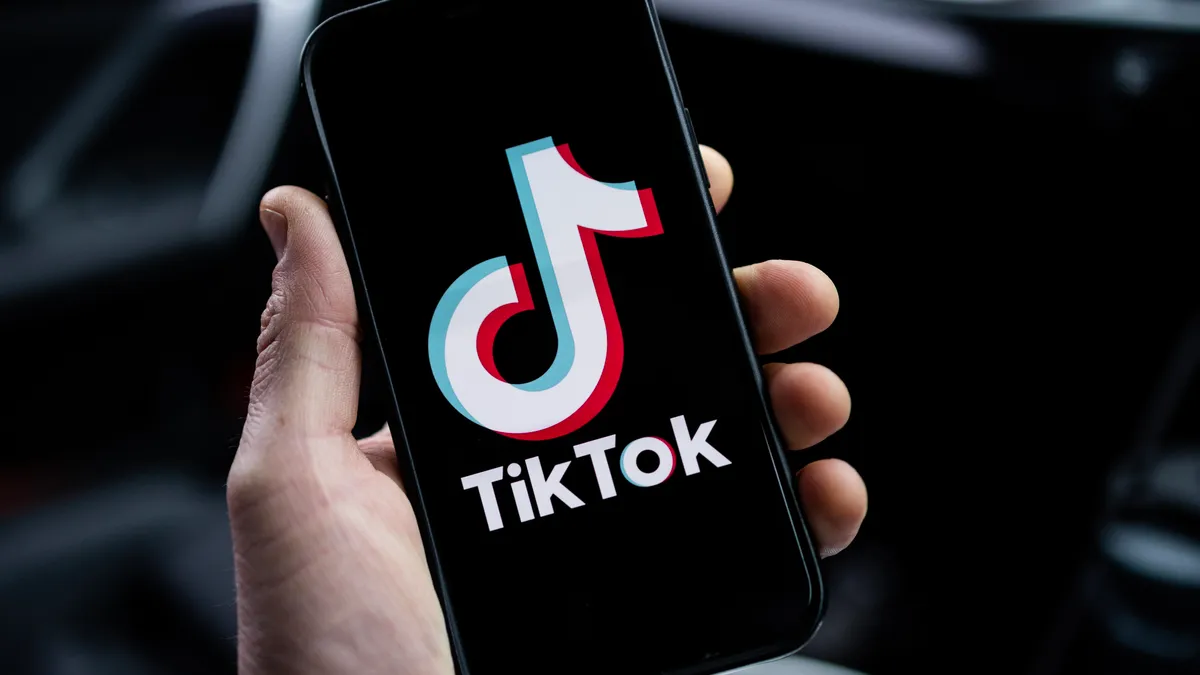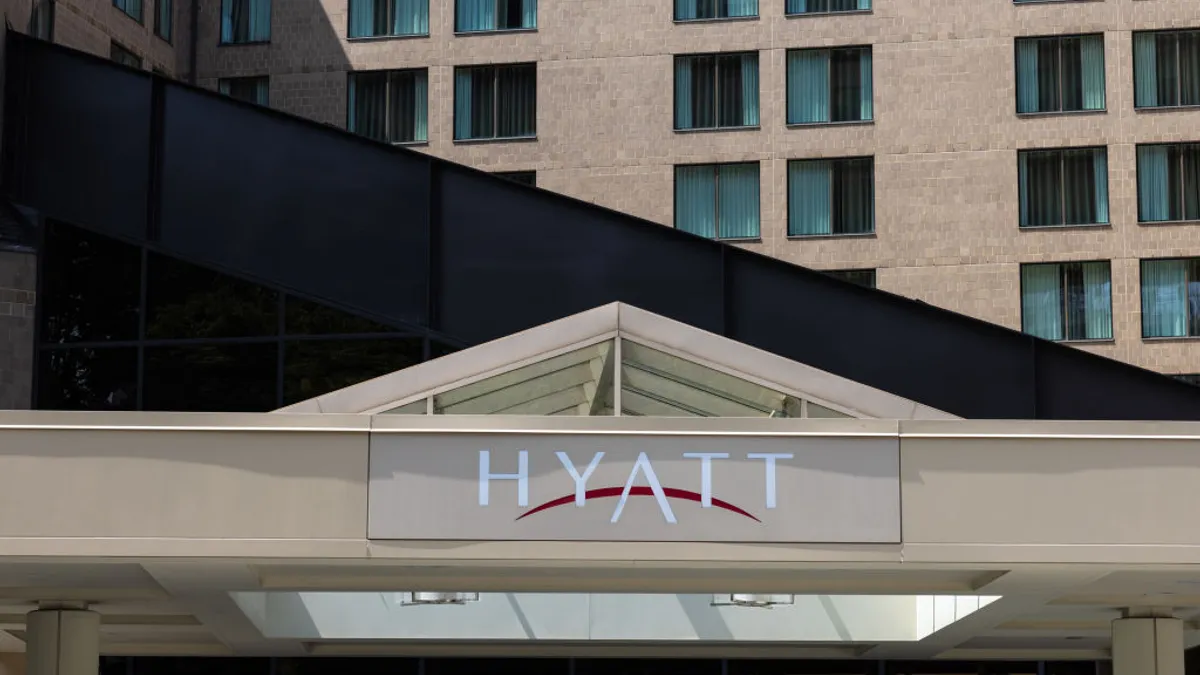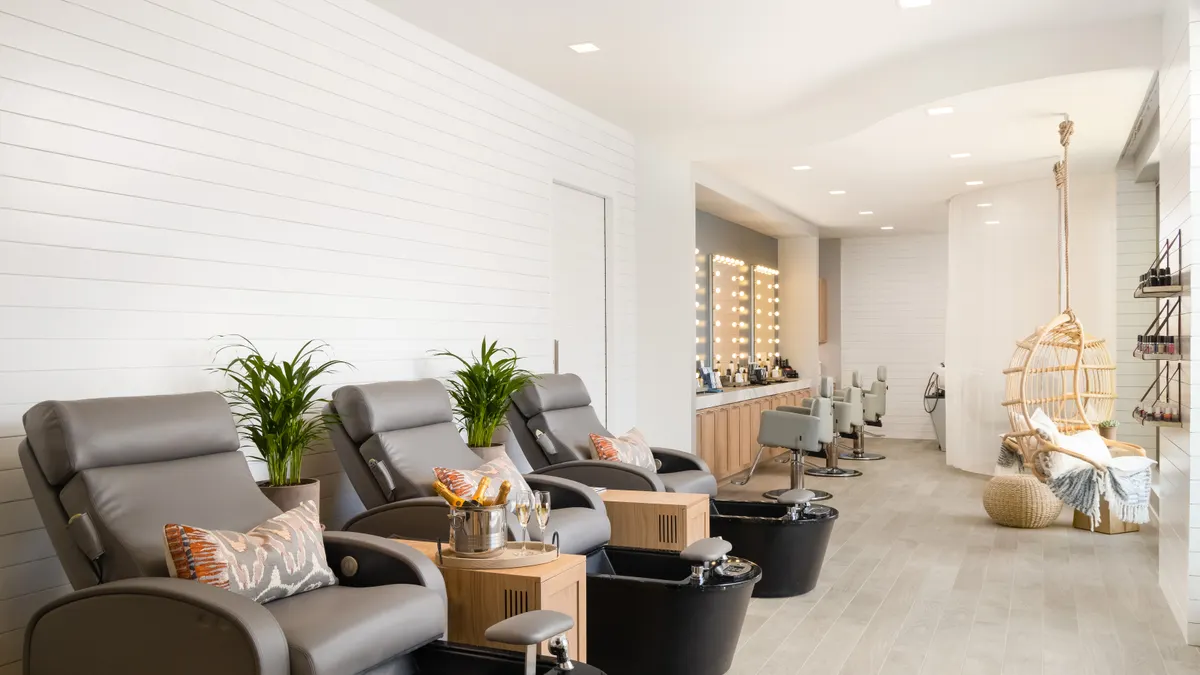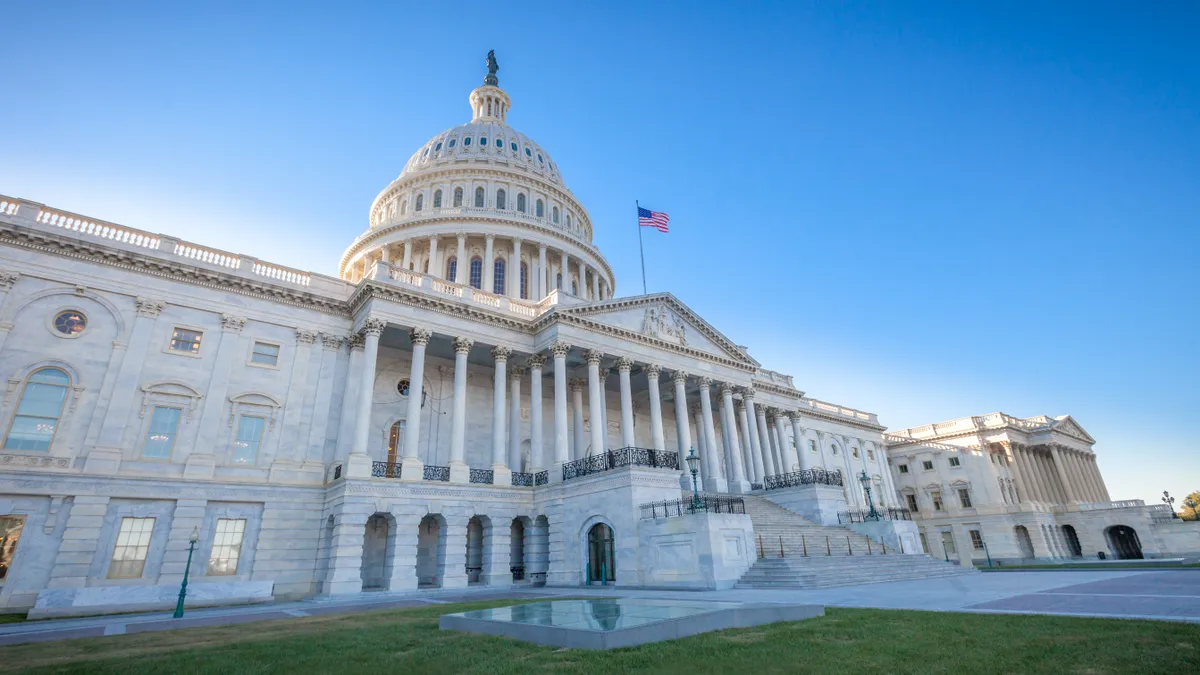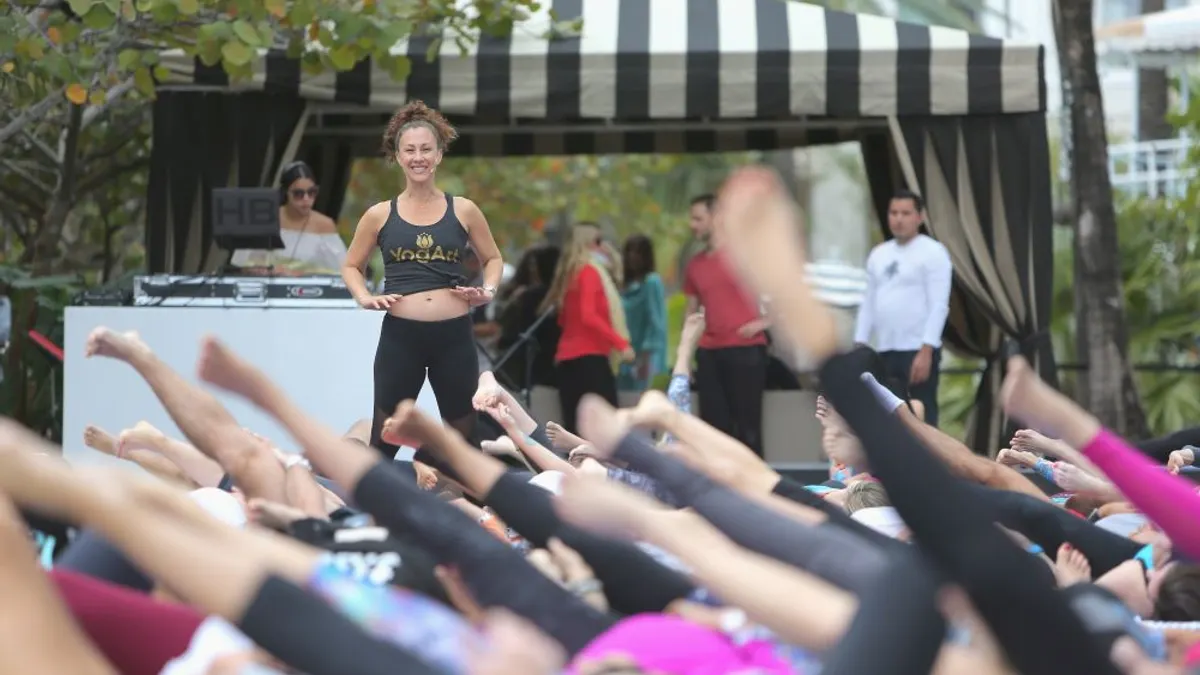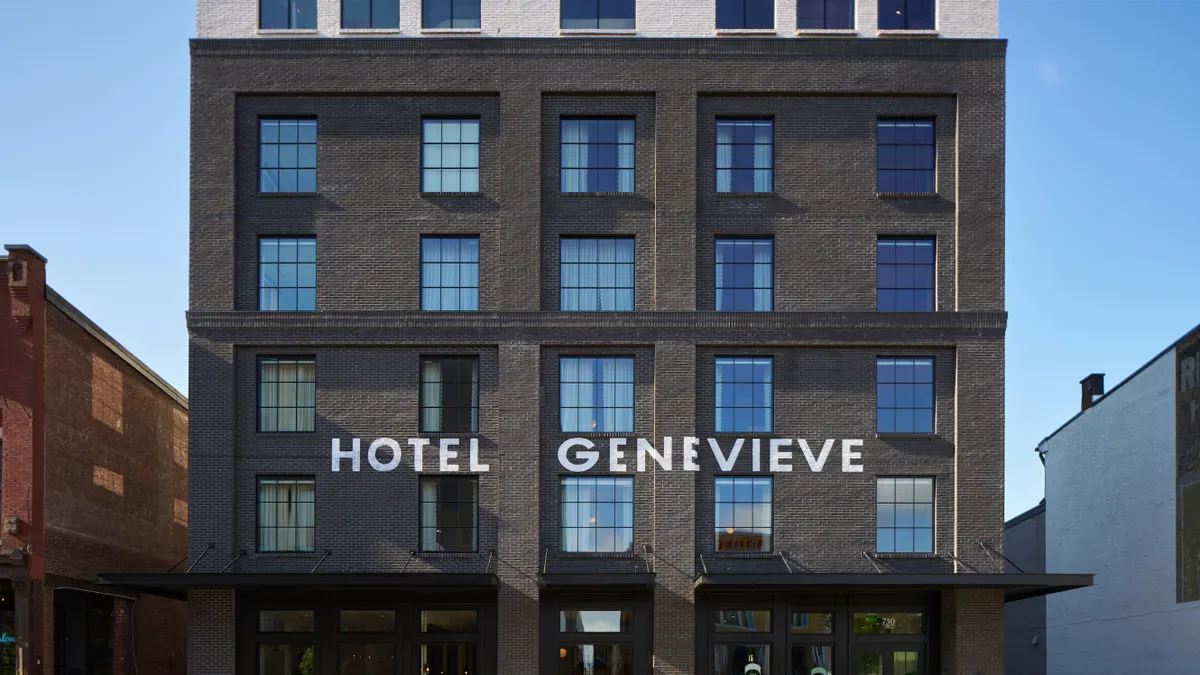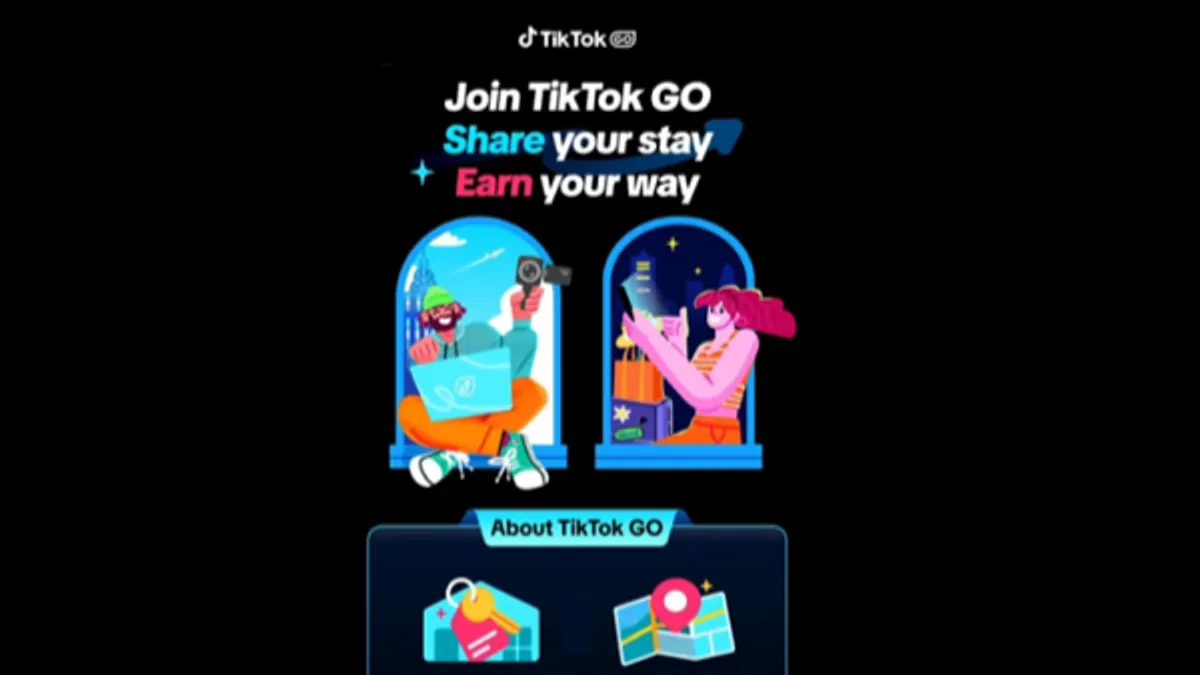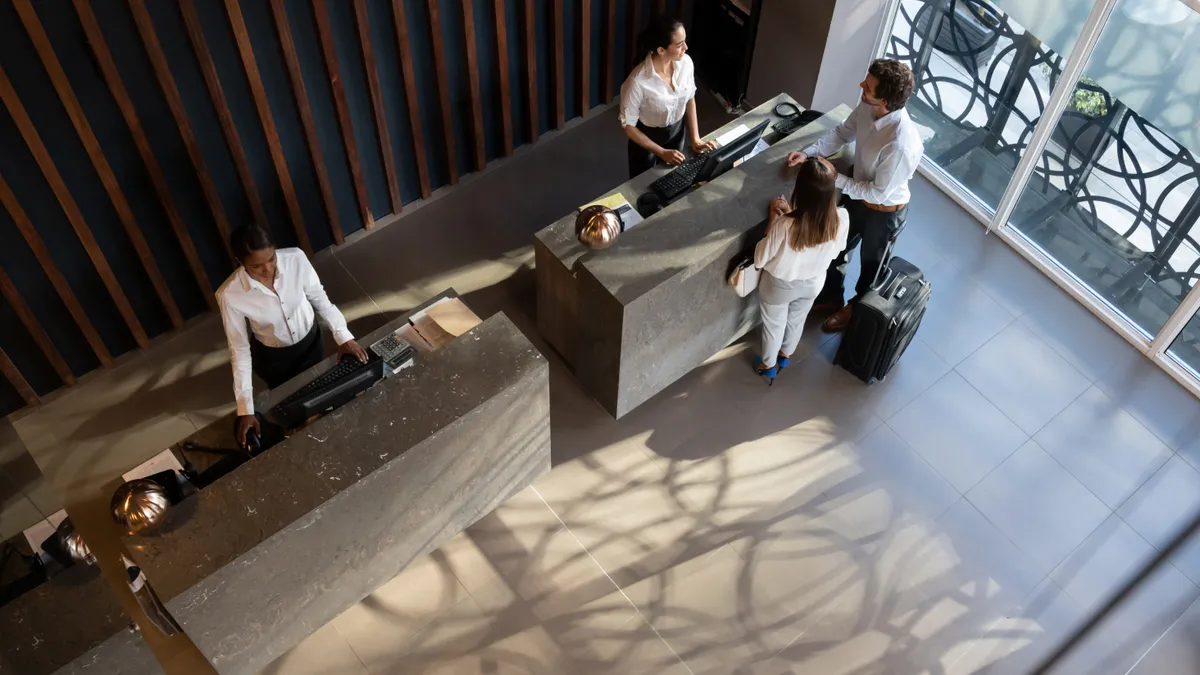TikTok has helped hotels boost visibility among travelers, particularly those of younger generations. But a potential U.S. ban of the social media platform could threaten a useful tool for hotel marketers.
The short-form mobile video platform owned by Chinese company ByteDance rose to popularity after first launching a Chinese version in 2016, then coming to the U.S. in 2018. The platform — which, unlike its counterparts, is used more for entertainment than socializing — was the most-downloaded app in the world from 2020 to 2022, and now, upwards of 170 million Americans use the platform, according to The New York Times.
With growing popularity, though, came speculation about TikTok’s safety, namely if the social media platform would expose sensitive user data to the Chinese government. Safety concerns became so great that in April, the Biden administration signed into law legislation that gives ByteDance one year to sell the platform or face a nationwide ban.
As an app that’s enabled trip-goers worldwide to discover destinations and hotels, a potential ban of TikTok begs the question: How will hotels be impacted?
Hotel Dive spoke to hospitality industry experts to find out how exactly hotels are using the platform to engage their audiences, what they stand to lose from the potential ban and what alternative marketing strategies hoteliers should consider as the fate of TikTok hangs in the balance.
TikTok marketing campaigns
There are many ways hotels can use TikTok to engage with potential customers — and with millions of active users in the U.S. alone, the platform offers a significant opportunity for reach.
Some hotel companies, including Hilton and Choice Hotels International, have launched TikTok campaigns intended to reach younger audiences.
Last year, Hilton ran a 10-minute TikTok video starring Paris Hilton as part of its “For the Stay” global marketing platform. The video, offering viewers the chance to earn “Hilton Honors points, experiences and swag,” generated “tremendous engagement,” Hilton Chief Marketing Officer Mark Weinstein told Hotel Dive in November. As of mid-June, the video had more than half a million likes and some 36,000 shares.
Choice Hotels also launched a TikTok campaign in April, starring influencer Jimmy Darts, who has upward of 12 million followers on the platform. The campaign, targeting millennial and Gen Z travelers, aimed to expand brand awareness for Choice’s Comfort and Cambria properties, Choice Chief Marketing Officer Noha Abdalla told Hotel Dive.
“TikTok serves as a powerful tool to engage both [millennial and Gen Z] demographics, as TikTok is widely popular among these generations,” Abdalla said at the time of the campaign launch.
Roughly 62% of U.S. adults under 30 say they use TikTok, compared with 39% of those ages 30 to 49, 24% of those ages 50 to 64 and 10% of those ages 65 and older, according to Pew Research Center.
“While Gen Z has exhibited a preference for TikTok, Instagram and Facebook have long been proven channels for hoteliers to post owned content and engage with creators and audiences across all generations."

Vanja Bogicevic
Clinical assistant professor of hospitality marketing at NYU’s Jonathan M. Tisch Center of Hospitality.
Despite a few big hotel players making a concerted push on TikTok, though, hotel companies are “not traditionally big spenders on TikTok performance marketing,” according to Vanja Bogicevic, a clinical assistant professor of hospitality marketing at NYU’s Jonathan M. Tisch Center of Hospitality.
“Marketing budgets for travel companies are more conservative compared to consumer goods, fast-food brands and even destination marketing organizations, which can afford large campaigns across all platforms,” Bogicevic said. “The greatest benefit for hotels is in earned reach from content creators.”
Creator-led content
Hotels can maintain visibility on TikTok without an official presence because users often create the content for them, according to Tina Markowitz, vice president of global digital strategy at hospitality technology company Cendyn.
For example, a guest staying at a Ritz-Carlton hotel could share a video lounging by the pool or reviewing the dinner they had at the property’s restaurant. Travelers interested in similar amenities or experiences could engage with this content by liking, commenting on or sharing the post.
Hotels can leverage that engagement for research purposes, Markowitz said, noting that they can see how people are talking about them and what aspects of their brand or property are — or aren’t — resonating with TikTok users. They can then use that information to tailor their marketing content on campaigns outside of the platform.
Creator-led content on TikTok may land better with younger audiences, too, in effect driving more reach for hotels, according to Bogicevic.
“Gen Z, particularly, wants to see content that is sincere, authentic, less produced and native to TikTok, meaning that it does not scream sponsored ad,” Bogicevic said of a trend that predates TikTok.
According to a Harris Poll from 2016, some 74% of Gen Z and millennials object to brands being in their social media feeds. And 56% reported cutting back or stopping use of social media platforms over advertising.
“Top- and middle-of-the-funnel engagement metrics, such as impressions, reach and view-through rates, are more likely to be higher for creator-led TikToks from guests and content creators who review hotel experiences, comment on amenities and loyalty program perks, educate about travel hacks or create listables,” Bogicevic added.
What hotels stand to lose
It’s hard to quantify the booking impact that hotels see from TikTok, particularly creator-led content, Bogicevic explained, because it’s common for viewers to exit a video, watch it later or simply visit a hotel website at a subsequent point.
Because tracking the viewer’s journey from TikTok to a hotel’s website can be difficult, it’s also hard to quantify the exact dollar amount hotels stand to lose from a potential ban of the platform, Bogicevic said.
The TikTok ban would be a “loss of a powerful and influential platform for both travelers and industry brands like Sonesta,” Sonesta Chief Marketing Officer Chris Trick told Hotel Dive.
But, the ban wouldn’t be fatal for hotel marketing campaigns.
Since Sonesta, for example, utilizes a variety of channels as part of its social strategy, the company would adjust to rely on others more heavily, Trick noted. “The ban would result in the need to shift those TikTok advertising and content marketing efforts back to focus on [other social channels owned by] Meta,” he said.
Markowitz had a similar take on the ban, saying that while TikTok is a “great tool,” if it were to disappear, hotels would simply “go to another platform.”
Hotels on TikTok are “trying to communicate with guests where they are,” so if the platform is banned, hotels will follow wherever guests go, she noted.
A TikTok ban would not massively impact hospitality revenue, Markowitz added, because a ban would require, “like every digital evolution over the past 10 or 20 years,” hotels to “think about what's next on the horizon and adjust accordingly.”
Alternatives to TikTok
In addition to pivoting social media efforts toward Meta, which operates Instagram, Sonesta would consider adding a YouTube Shorts strategy if TikTok is banned, Trick said.
Bogicevic said Instagram and Facebook, as well as YouTube Shorts, would be good platforms for hotels to prioritize as alternatives to TikTok.
“While Gen Z has exhibited a preference for TikTok, Instagram and Facebook have long been proven channels for hoteliers to post owned content and engage with creators and audiences across all generations,” Bogicevic said. “Paid campaigns on these platforms tend to be more affordable for hotels, particularly for third-party-owned and operated and independent properties.”
Markowitz expressed similar sentiments.
“I still see Instagram as a really powerful tool,” she said. “It has maintained its productivity and efficiency in terms of being able to both drive awareness and generate revenue.”
Bogicevic said that Snapchat has also “been gaining traction among younger audiences, though the advertising model is not straightforward.”
Despite all the alternative options — including platforms that may not even be on the scene yet — TikTok should not be discounted, Markowitz said.
When building future influencer or content creator partnership programs, hoteliers should be “thinking about maintaining visibility across a multitude of platforms,” Markowitz said, but also making sure that they’re continuing to be on TikTok because “it’s not going anywhere right now, this second.”



